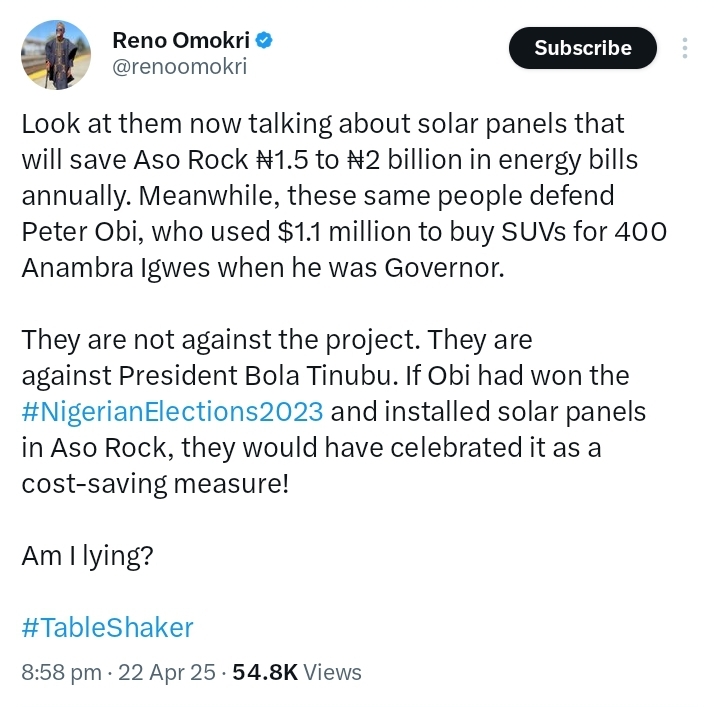Former presidential aide and political commentator, Reno Omokri, has taken a swipe at critics opposing the proposed ₦10 billion solar power project at the Presidential Villa in Abuja, accusing them of hypocrisy and political bias.
The controversial project, which aims to transition Aso Rock to solar energy, has sparked widespread backlash across social and political circles.
Many critics have described it as an extravagant and unnecessary expenditure amidst the nation’s economic struggles.
READ ALSO: Presidency defends N10bn solar project for Aso Rock amid criticisms
However, Reno Omokri, a staunch supporter of President Bola Tinubu, came to the administration’s defense, insisting that the outrage stems not from genuine concern over government spending but from deep-rooted political animosity toward the president.

“Look at them now talking about solar panels that will save Aso Rock ₦1.5 to ₦2 billion in energy bills annually,” Omokri wrote in a post on X. “Meanwhile, these same people defend Peter Obi, who used $1.1 million to buy SUVs for 400 Anambra Igwes when he was Governor.”
He went further to argue that the same critics would have applauded the solar project if it were initiated by Peter Obi, the Labour Party’s presidential candidate in the 2023 general election.
“They are not against the project. They are against President Bola Tinubu. If Obi had won the #NigerianElections2023 and installed solar panels in Aso Rock, they would have celebrated it as a cost-saving measure!” he said. “Am I lying?”
Omokri’s comments have added fuel to an already heated debate surrounding fiscal responsibility, green energy adoption, and the politicization of public policy in Nigeria.
While government officials claim the solar project will drastically cut annual energy expenditures at the villa, opposition voices continue to argue that the hefty ₦10 billion price tag is unjustifiable amid Nigeria’s cost-of-living crisis.
The presidency is yet to release a detailed breakdown of the solar project’s budget or respond directly to the criticism, but Omokri’s intervention signals the administration’s readiness to frame the initiative as a long-term investment in sustainability and cost-efficiency.
As the debate intensifies, questions linger over whether public discourse on governance can ever rise above political affiliations to address the merits and flaws of national policy on their own terms.

